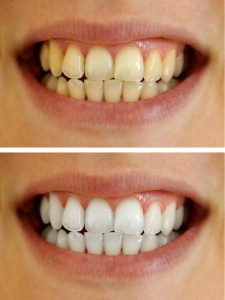 You have probably heard about fluoride and how it is good for your teeth since you were a small child. Whenever you went to get a check-up at the dentist, they would inevitably conclude it with a fluoride treatment. However, did you know fluoride can cause a condition called fluorosis? Too much fluoride, especially for young children, can actually be damaging to teeth. Your dentist in Superior, WI, Dr. Doug Clark, wants you to know more about this common condition.
You have probably heard about fluoride and how it is good for your teeth since you were a small child. Whenever you went to get a check-up at the dentist, they would inevitably conclude it with a fluoride treatment. However, did you know fluoride can cause a condition called fluorosis? Too much fluoride, especially for young children, can actually be damaging to teeth. Your dentist in Superior, WI, Dr. Doug Clark, wants you to know more about this common condition.
What is Fluorosis?
Fluoride has been used for generations to fight tooth decay because it contributes to a process called remineralization. Basically, your teeth are made of a combination of minerals, and these can be eaten away by plaque. Fluoride helps replace these lost minerals, protecting you from cavities.
Unfortunately, there can be too much of a good thing. Over-exposure to fluoride can lead to a variety of cosmetic issues, such as:
- White splotches on teeth
- Yellow and brown strains
- Pitting of the enamel
This is caused by too much fluoride building up on your teeth. Children are more susceptible to fluorosis while their permanent teeth are still forming. This why many dental professionals, including Dr. Clark, recommend that children should have limited or no exposure to fluoride during their first 8 years. Common sources of fluoride include toothpastes, mouth rinses, supplements, and public drinking water. Many sodas and juices for children also may have fluoride added to them.
How Can I Treat/Prevent Fluorosis?
The best thing you can do to protect your child from fluorosis is limit the amount of fluoride they are exposed to. One way you can do this is by making sure they are using a non-fluoride toothpaste. Many public water sources also have fluoride, so consult with Dr. Clark to see what the fluoride level is for your local water.
Fluorosis can be treated in a number of ways. For mild cases, teeth-whitening can help take away the stains and give your smile a more natural look. More severe cases can be treated using porcelain veneers or cosmetic bonding. Both of these methods can effectively mask the cosmetic problems brought on by fluorosis. Dr. Clark can easily let you know which approach is right for you, as well as how you can prevent any more problems in the future.
Any Questions?
If you or your child are showing symptoms of fluorosis, all you need to do is make an appointment with your cosmetic dentist in Superior, WI. This will give Dr. Clark the chance to evaluate your teeth and be sure that you are suffering from fluorosis. If you are, he will be able to advise you on the best possible course of treatment. This will also give you the chance to ask about how you can avoid it in the future. Fluorosis is easily treatable and preventable with a little help from Hill Avenue Dental. If you have any more questions about fluorosis, please don’t wait to call us today.









